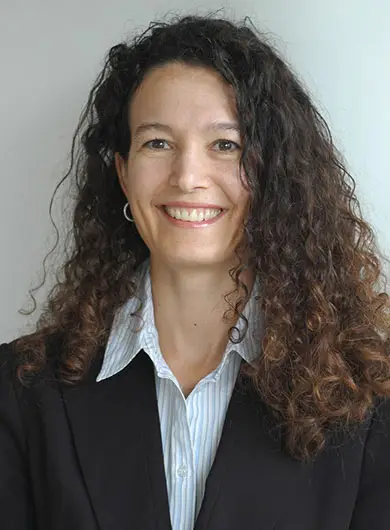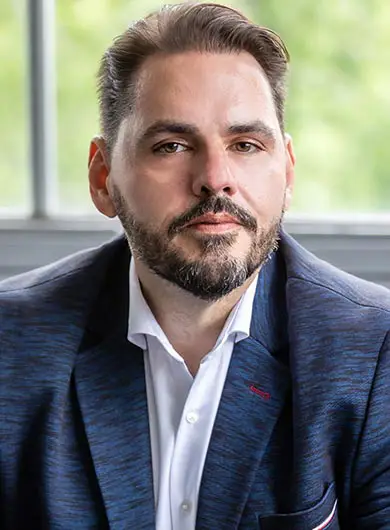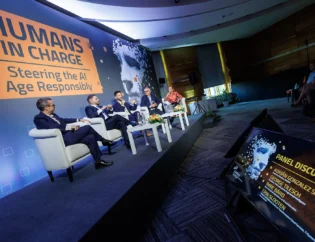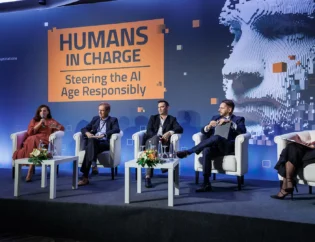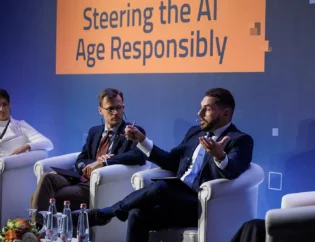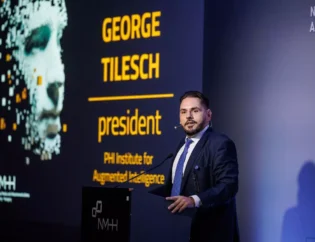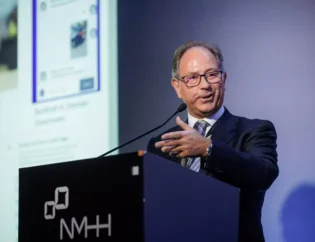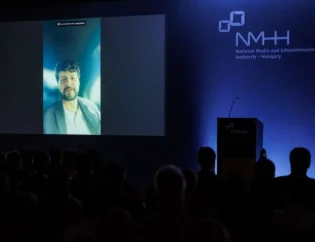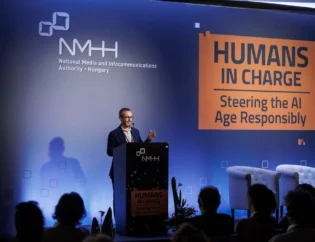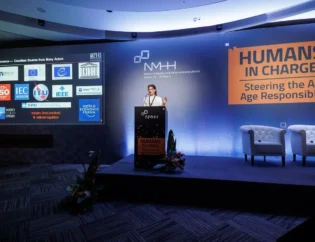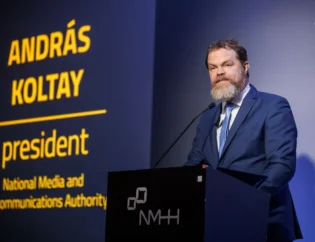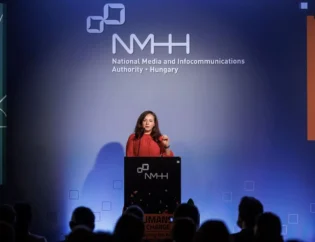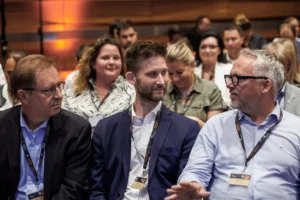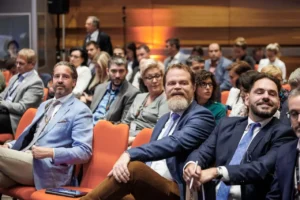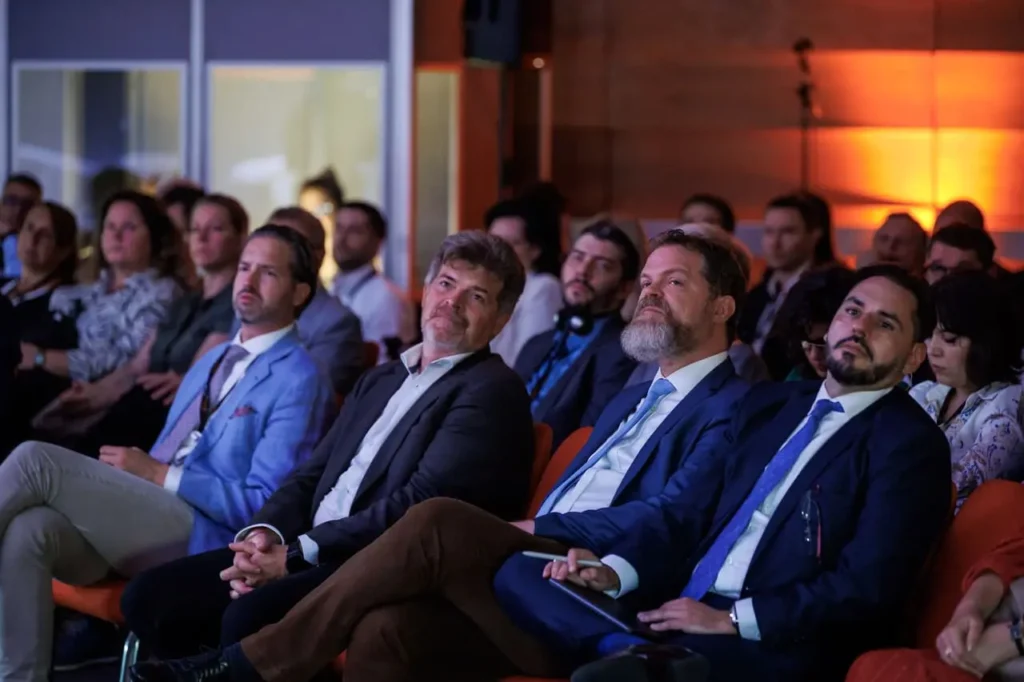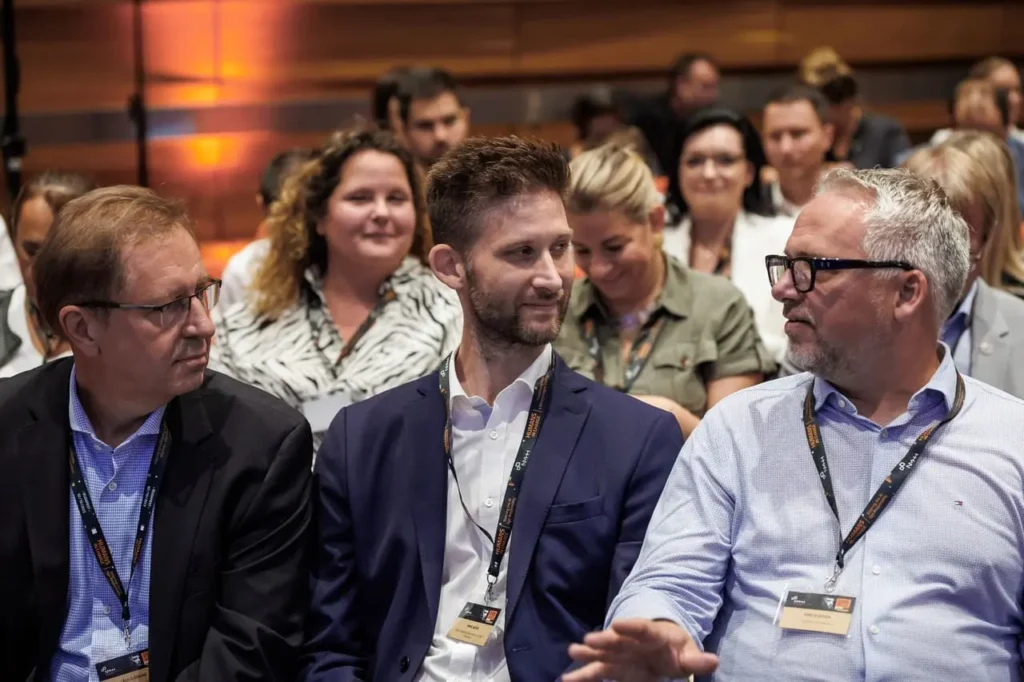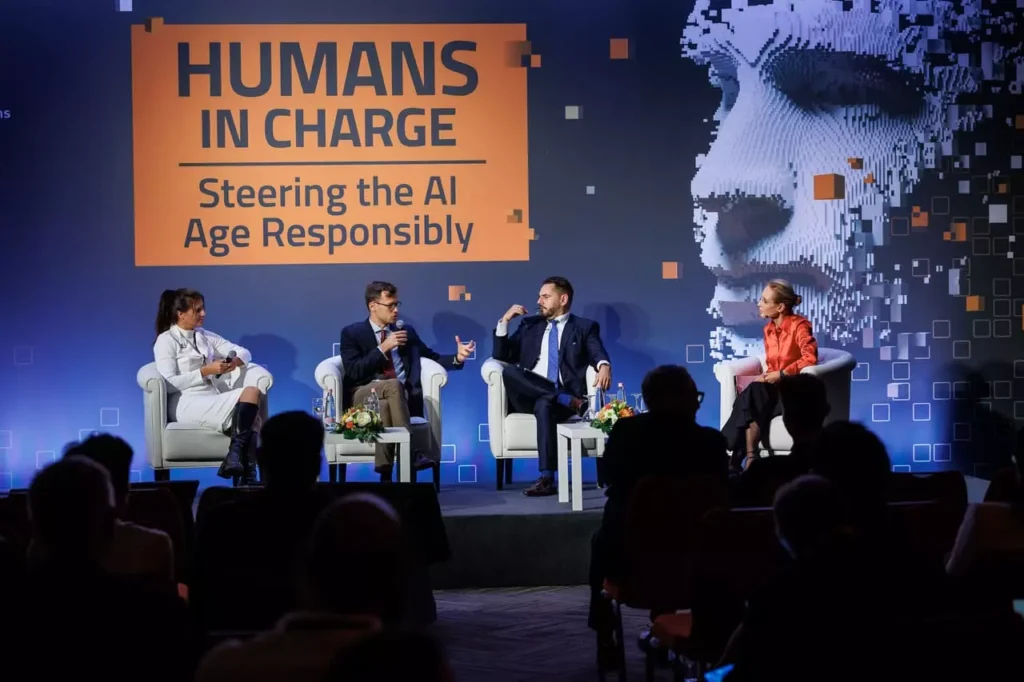AI in Society & Public Services
THE FOURTH PANEL. AI-infused government services are one of the key areas where citizens may first encounter and internalize the boons of AI. How do governments of the world realize the potential of AI for their citizens, either via public-facing services or in the background, strategically?
Questions to answer
- How can current EU leadership and the incoming next generation of government leaders be ready for the challenges of steering governmental AI for public benefit?
- How do Europeans governments contribute to a safer, more predictable and trustworthy digital environment in the AI Age for people and the economy?
- What role can AI sandboxes play in operationalizing these objectives and where do we stand with them?
- Considering the close proximity of the DSA and the AI Act, what is the right balance of partnerships and oversight between public authorities and large platforms, the forerunners of AI?
Participants
Andrea Halmos
Deputy Head of Unit, Unit B2 Interoperability, Directorate-General Informatics, European Commission
Her work includes the negotiation and implementation of the recently published Interoperable Europe Act, with particular focus on the role of interoperability on common European data spaces, AI in the public sector, GovTech and the digital transformation of local and regional administrations.
Kristel Kriisa
AI Project Manager, Estonian Information System Authority
Kristel is an adept educator with exceptional digital proficiency, passionate about AI and EdTech. She leads a project to support public sector organizations seeking to provide AI-based services. Her responsibilities include ensuring global visibility of Estonia's AI capabilities and contributing to Estonia’s third National AI Strategy.
Gianluca Misuraca
Executive Director of the Master on Artificial Intelligence in public services (AI4GOV)
Gianluca is founder and Vice President on Technology Diplomacy and International Relations of Inspiring Futures (IF), a global advisory consultancy in Strategic Foresight, Social Innovation and Digital Governance with headquarters in Lausanne and Seville.
George Tilesch
Founder & President, PHI Institute for Augmented Intelligence
George is a senior global innovation and AI expert, executive, and consultant, primarily in the transatlantic space. For over 20 years, he has been active as a cross-sector and cross-industry conduit between AI ecosystems worldwide and as a trusted advisor for world leaders.


